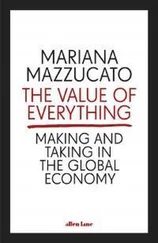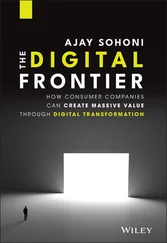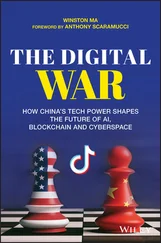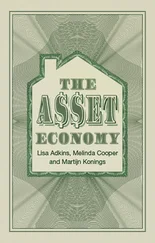From Couldry in media studies to Haraway on troubling boundaries, I could also have looked at Barnes’s (1988) collective action theory, Butler’s (1997) theory of performativity, and Latour’s (2007) actor network theory, which broadly and similarly demonstrate how practice encompasses the myriad interactions and entanglements between many different kinds of actors (human and non-human) that create patterned forms of life. Drawing inspiration from these sources but focusing on the digital economy, the aim is to follow the practices; paraphrasing Touraine, when analysing the digital economy it is important to ‘pass on the side of actors’ practices’ (2002: 89).
Economic practices, then, are the habits, actions and meanings, formed into repeated routines, that sustain how we produce and exchange the goods that provide for life, wealth and their reproduction. Adam Smith famously, and broadly, enquired into the ‘wealth of nations’, and particularly into the peculiarly human ‘truck, bartering and exchanging’ of one thing for another, while Marx enquired into humans who, in producing their subsistence, ‘are definitely producing their actual material life’ (Smith 1982; Marx 1978). To these we can add Marshall’s view that the economy is the ‘social action which is most closely connected with the attainment and with the use of the material requisites of wellbeing’ (1890: 6). As Keynes emphasised, this attention to social life and its production and reproduction makes economics a moral and therefore imprecise science, and one that requires the observation of economics in action (Keynes 1938). Feminist accounts have ensured that such a view of the economy is not just about the production of goods and labour but also their reproduction (Jarrett 2016). The economy connects the production and reproduction of life to the creation, exchange and consumption of the goods and commodities of all kinds that constitute wealth. Furthermore, because these complex inter-relations between creation, exchange and consumption are embedded in ways of life, they have to gain meaning within practices: an economy of exchange of food and shelter for sheer subsistence is very different to an IT-enabled, app-focused economy of attention, but both are economies embedded in and gaining meaning from the ways people live. Whatever it is that is created, exchanged or consumed, it can only derive its meaning from being embedded in social worlds which give meaning to goods or commodities themselves.
The definition of economic practices employed here follows this, perhaps more classical, understanding of the economy, while also drawing inspiration from revisions of economics in the light of the 2008 financial crisis (e.g. Piketty 2014), and from the work of contemporary cultural economists and analysts of the creative industries (Core 2018; Hesmondhalgh 2010; Banks 2017). This is important, for being open to finding a new phenomenon requires attention to what is occurring, since it is all too easy to see what is already known. Economic practices are then the practices that create and sustain the wealth of a society, seen in its exchanges of goods or commodities, and the organisation of the production and reproduction of life through everyday practices. These two sides are closely connected and ensure that various cultures in society are attended to, something that will be crucial in understanding the digital economy.
This book treats digital economic practices as repeated and patterned habits of creating, exchanging and consuming a huge range of goods and commodities that make up the wealth of society, while understanding that often the meanings of these commodities must themselves emerge from within those practices. This entails paying close attention to the practices that produce and reproduce social life. My approach is then a materialist and a qualitative one. The numbers can only speak when we know what they are talking about, and, when confronted by what seems to be a new form of economy, we can only reach that understanding by following and examining its economic practices and particularly its distinctive causal mechanisms. If the digital economy is powerful and fast growing – at least according to the faulty numbers I have presented – then it is important to examine the economic practices that constitute it.
Any self-respecting university course or textbook on industry economics spends some time at the outset discussing the difficulties of defining an industry – i.e. whether the concept of industry can be delineated according to groupings of producers, product classifications, factors of production, types of consumers, location, etc. What is problematical for industries in general is especially so in the cultural sphere because of uncertainties in the definition of cultural goods and services. (Throsby 2014: 112)
The opening to this book has conformed to Throsby’s concerns about the difficulties of definition; indeed, the main aim of this introduction has involved the contradictory purposes of establishing the importance of the digital economy while noting that it is hard to know what ‘digital economy’ means. The statistical data I have presented broadly suggests that there is something about the digital economy that deserves serious attention. Many other indications point toward the need to grasp what has happened since the 1970s in economic terms, with the rise of digital and internet socio-technologies. For example, in 2018, first Apple and then Amazon became the first companies ever to be valued at over 1 trillion US dollars (Axon 2018). The difference between Amazon and Apple is again illustrative of the difficulties of deciding what kind of economic activity constitutes the digital economy, given the former’s origins as a digital and internet company and the latter’s as a design and manufacturing company.
What is missing is a definition and model of the digital economy as a sector within the wider economy. Modelling the digital as a sector is key to discovering if there is anything distinctive about the digital amid the complexity of the everyday, in which all kinds of different and hybrid economic practices will be present. The qualitative method adopted here is to follow digital economic practices in their patterned interactions until there is a strong enough base to posit a model. This conforms to Keynes’s suggestion regarding economic thought:
one cannot get very far except by devising new and improved models. This requires … ‘a vigilant observation of the actual working of our system’. Progress in economics consists almost entirely in a progressive improvement in the choice of models … The object of statistical study is not so much to fill in missing variables with a view to prediction, as to test the relevance and validity of the model. (Keynes 1938)
The plan of this book is to move from the questions posed by this introduction, and more generally by the hype surrounding the significance of digital economic activities, to examine a range of ways the digital economy operates in practice. This will be achieved in two phases: in the next five chapters case studies of digital economic practices will be presented; following this, three chapters will provide concepts for, a model of, and policy questions about the digital economy.
The five case studies will cover search, social media, disintermediation, free digital economic practices and games. Chapter 2, on search, will examine Google as well as Baidu and other search engines. The importance of the collective activities that construct the World Wide Web (WWW) – which are then ‘read’ to produce search results that are combined with subsequent personalisation based on data collected from users – will be stressed in order to demonstrate how the value of Google’s search results depends on the community of practice that it ‘reads’. Monetisation will be examined to show how the search engine platform privatises the information it collects, generates new information, and then monetises that information through targeted advertising. Chapter 3, on social media, identifies a similar economic practice, though here the ‘value’ resides in the very stuff of emotional and social life. This is explored in relation to Facebook, Snapchat and WeChat, among other social media sites. Again, the way in which a set of collective activities is created and then ‘read’ in order to be monetised will be demonstrated.
Читать дальше












